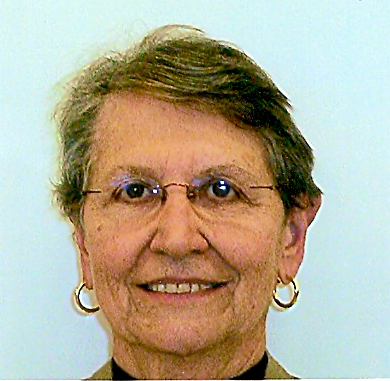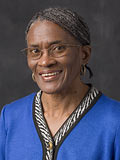I was enjoying Why I Live at the P.O. when out of the blue Sister uses the N word. Not only does she address the little girl with the word, she also tells the girl to do her bidding. Sister did not ask if she could borrow the wagon or if the girl had other errands to run, but said, “Come help me haul these things down the hill.”
Sister’s need to control something has her ordering around a little black girl. I get the concept without the word. The girl took nine trips up and down the hill, and Uncle Ronda is the one to throw her a nickel for her troubles. Does Sister offer her any compensation? No. The child is merely her slave for a day.
Last summer, I spent time reading all of Flannery O’Connor’s work for the Southern Reading Challenge. At first I did not like her. Not one iota! Her benign use of the N word set me off. Just as Welty, I got the point without all the word usage, but then I realized she wasn’t trying to make a point. The N word was just a vocabulary choice and not meant to set my teeth. I went back and reread O’Connor’s work and these are my thoughts at the time, and this is my copy written for the newspapers that following week.
Sister’s need to control something has her ordering around a little black girl. I get the concept without the word. The girl took nine trips up and down the hill, and Uncle Ronda is the one to throw her a nickel for her troubles. Does Sister offer her any compensation? No. The child is merely her slave for a day.
Last summer, I spent time reading all of Flannery O’Connor’s work for the Southern Reading Challenge. At first I did not like her. Not one iota! Her benign use of the N word set me off. Just as Welty, I got the point without all the word usage, but then I realized she wasn’t trying to make a point. The N word was just a vocabulary choice and not meant to set my teeth. I went back and reread O’Connor’s work and these are my thoughts at the time, and this is my copy written for the newspapers that following week.

 JenClair, a bloggie friend, had the same complaint (scroll down to the Hey Maggie post) upon reading O’Connor. Her source of relief came in the form of O’Connor’s book, Letters of Flannery O'Connor: The Habit of Being. I decided to look in Suzanne Marrs’ Eudora Welty: A Biography for answers.
JenClair, a bloggie friend, had the same complaint (scroll down to the Hey Maggie post) upon reading O’Connor. Her source of relief came in the form of O’Connor’s book, Letters of Flannery O'Connor: The Habit of Being. I decided to look in Suzanne Marrs’ Eudora Welty: A Biography for answers.Editor John Ferrone recalled her request: “Eudora wrote to correct a typo in the story ‘Powerhouse’ and another in ‘Ladies in Spring.’ Then she said there was a third change, not due to a typesetter’s error but a ‘way of speech forty years ago.’ She wanted the word ‘nigger’ to be deleted from ‘Why I Live at the P.O.’ In a later letter, she asked to have it deleted wherever it appeared, explaining that while it cropped up naturally in conversation in the older stories, 1980s readers might find it ‘throbbing with associations not then part of it.’ She decided instead to review the offensive word case by case, because in the end it was dealt with in several ways.” (452)
Marrs continues in the same paragraph: “In Eudora’s stories, narrative voice was seldom unitary, and in the 1930s and 1940s, it at times shifted into voices of white characters for whom nigger was a culturally inherited concept and who unselfconsciously and obtusely used the term without thought of or care for its effect. Given the political climate of 1980, however, Eudora feared that such characters might seem more bullying than benighted and that her stories might be misconstrued.” (453)
Can you as reader guess my question? Miss Welty intentionally left the offending words in Sister’s speech. I saw Sister using them in a bullying fashion, but given the silliness of Sister’s character, I must be wrong. Did I fall into the 1980s reader of which Miss Welty spoke? ~ Maggie
Marrs continues in the same paragraph: “In Eudora’s stories, narrative voice was seldom unitary, and in the 1930s and 1940s, it at times shifted into voices of white characters for whom nigger was a culturally inherited concept and who unselfconsciously and obtusely used the term without thought of or care for its effect. Given the political climate of 1980, however, Eudora feared that such characters might seem more bullying than benighted and that her stories might be misconstrued.” (453)
Can you as reader guess my question? Miss Welty intentionally left the offending words in Sister’s speech. I saw Sister using them in a bullying fashion, but given the silliness of Sister’s character, I must be wrong. Did I fall into the 1980s reader of which Miss Welty spoke? ~ Maggie











4 comments:
Very interesting! It would be nice to see this word dead and buried! Thanks for stopping by and sharing the book title, Anon.
I just can't grasp why the usage of the word couldn't be avoided. In addition, why does it becom relative important for readers in the 1980s? I firmly believe that the word black could have been effectively used in place fo the word. It would have still presented the same message being portrayed.
I think Welty makes a point for the southern white that it wasn't that important of a word, but then she was never on the recieving end of the word. I'm guessing, but I would think in the 20s, 30s, 40s, etc. the word was as offensive to a black person's ears as the 80s, 90s, and today. To me the word doesn't denote a mere color difference, but a negative type of person of different color. Am I wrong?
I absolutely agree with you. It represents inferiority and negative thinking. It really kind of turned me off with the story, which didn't help that fact that I couldn't grasp the humor.
Post a Comment